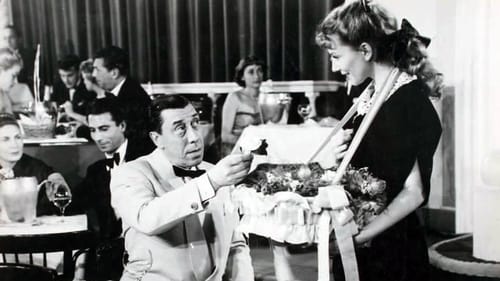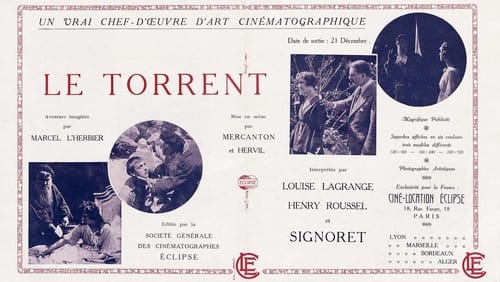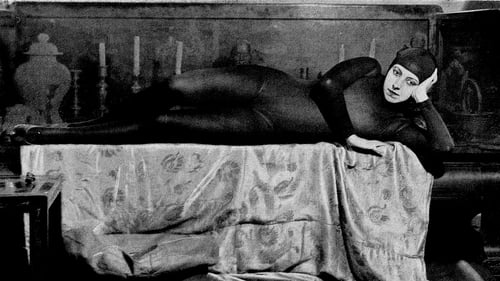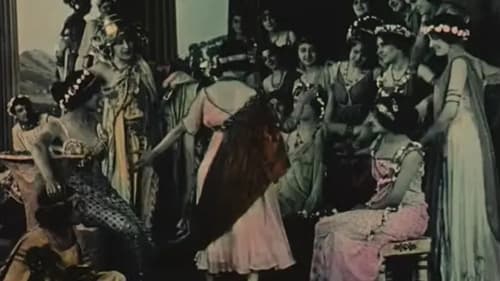
La veuve de Paul-Emile Racu (uncredited)
Is it because his father was a groom that Adhémar Pomme has a long horse head and a horse- toothed smile? Maybe but the fact is that his head has invariably caused laughter whatever the circumstances, which is the tragedy of his life. After having worked as an undertaker, a theater prompter, a casino bouncer, and so on, and failing at each job, he applies out of desperation to an institution where those rejected for physical reasons can hide and live together. But Adhémar immediately starts... laughing at them and gets kicked out as a result! In the end though, he finds his way as a circus artist.

Alice Baudoin
Micheline, who fled to Paris with the man she is in love with, finds herself on her own when he abandons her. She lands in a reformatory from which she manages to escape.

To receive the inheritance of his uncle, who died in Brazil, Claude, who has no money, must absolutely marry one of his three cousins.

Judex the vigilante enjoins crooked banker Maurice-Ernest Favraux to distribute his ill-gotten fortune to the city's poor. The thugs decide to kidnap the financier's daughter.

Louise
A man who suffers from the delirium of persecution and to the point of trying to strangle his wife is interned. His brother, needing his signature for his own business, gets him out of the asylum with the complicity of a false magistrate and against the advice of the doctor.

A wife believes her husband has been deceiving her and decides to have some fun at his expense. After a bit of mischief, her husband, a lawyer who is preparing a divorce for a client, decides to start divorce proceedings himself. The wife then realises she has gone too far.

A naval officer has to abandon a young girl he has rescued as a stowaway, to the mercies of his sleazy show business mother and her plans.

Luicha Irrigoyen
Expressing post-war cultural internationalism, this silent film follows the mysterious Orchid and the man who loves her.

Lolette

An English circus clown finds he's lost his touch after returning from war.

Mimi-Trottin
Charming Mimi-Trottin is in love with typographer Louis Chausson, nicknamed Godasse. She meets Doudou, actually a Vicomte, estranged with his parents who are rich automobile manufacturers. Godasse abandons Mimi because of his professional ambitions and Doudou rescues her from a suicide. After making peace with his parents, the young man has Mimi hired as a typist at the factory. After winning a race with one of his father's car, he soon wins the heart and the hand of Mimi.

Noëlle d'Horgans
"A charming story of a young society girl and the pathetic love of a youth..." Considered a lost film.

Marie Lebroux
A mother loses first her son and then her husband in the trenches of France during the First World War. She devotes herself to the French cause and to helping those wounded in the war.

A soldier during World War 1 wants to be reunited with his family for Christmas.

Jeanne Guérande
Paris is prey to an invisible terror against which the police can do nothing: a sinister organization that sows chaos and death. The intrepid journalist Philippe Guérande and his partner embark on a long crusade to put an end to the crimes of the Great Vampire and Irma Vep, his dangerous accomplice. (A ten episode movie serial.)

During the WWI, Jeannette (Musidora) finds refuge in the South France, among other women. She starts the correspondence with a soldier of the front line and sends him a parcel.

Pisa, 1494. Young Severo, who has sworn to stab the tyrant in his town, learns that it is his own father.

Georges Méliès's first attempt at Cinderella was in 1899. That film was extraordinary then for having multiple scenes and a semblance of a narrative; additionally, the use of dissolves as transitions in it influenced other filmmakers for years to do the same. Méliès was the cinema world's preeminent leader then. By 1912, however, that was no longer the case; frankly, as evidenced by this feature, his style had become dated. Moreover, Méliès had begun to adopt techniques from other filmmakers, such as direct cuts instead of dissolves, and there's even a match on action shot during the slipper trying-on scene.

The tyrant Emperor Heliogabalus lives a life of debauchery and set lions loose among his guests.

Cendrillon
This is a compact telling of the Cinderella fairy tale and the film is elaborately staged.














